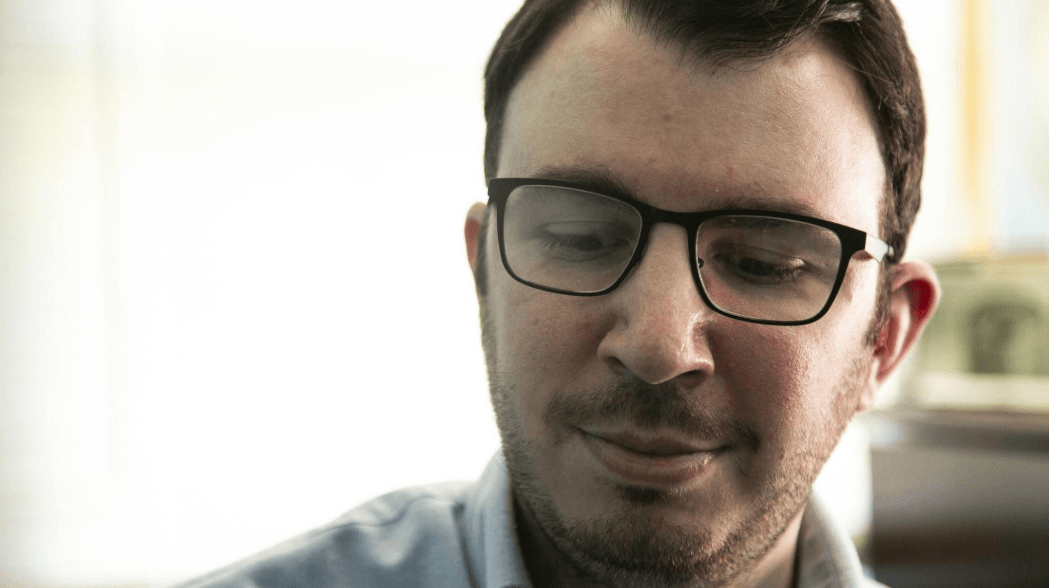Originally published in the Hartford Courant on July 22, 2018. To see the original article, click here.
For many years I was consumed by worry and bitterness, thinking I was the only one who was given an unfair lot in life.
My body, once athletic and fit, was weakening from the uncompromising progression of an adult-onset neuromuscular disease called Limb-girdle muscular dystrophy type 2B. On my 21st birthday, I was asymptomatic; three years later I was falling on sidewalks with no warning. The divide between where I was at in my life and where I thought I would be had widened into a seemingly insurmountable chasm. I was consumed by jealousy. While my friends were advancing in their careers, buying houses and getting married, I was worried about whether I could get up under my own power if I fell again on my walk home.
I was angry. But above all, I felt alone. I felt that no one could possibly understand what I was going through. That my disease was somehow, incomprehensibly, my fault. As I can only see now with the benefit of hindsight, depression is not a rational beast.

I am 31 now and am in a much better place emotionally than where I was in my mid-20s. I have recovered from that low point and, for the most part, have gotten my life back on track. Two years ago, I graduated from business school and today am working as a market intelligence manager for a large nonprofit organization. But accomplishments aside, I still remember vividly what it was like to suffer silently, depressed, not knowing if I was strong enough to handle my lot in life. Not knowing if anyone could relate to what I was going through. My physical challenges were nothing compared to the suffering I went through emotionally.
If there was one benefit to going through that hellish period, it was learning how to put myself in someone else’s shoes. Once it finally sunk in that I was not the only person in the world going through adversity, I began to see life through a different lens. A more compassionate lens.
I think about that time in my life often, especially in the last few weeks as I learned of the suicides of Kate Spade and Anthony Bourdain. Here were two people who, by all measures, were raging successes, yet who were silently struggling on the inside.
Their passing only reinforces the fact that we are all carrying around heavy burdens in this life. Maybe you are struggling to cope with the constant negativity and anger in the news. Maybe you are tired of comparing your life to the perfect lives everyone seems to be living on Facebook or Instagram, wondering why that can’t be you. Or maybe it’s something else — a health challenge, a loss of a loved one or unfulfilled dreams. Whatever the root cause, no one is immune from experiencing hardship and adversity in life. No one.
But as I eventually grew to appreciate after repeatedly scraping myself off of sidewalks throughout the Boston metro area, our shortcomings, flaws and disabilities can be our greatest source of beauty and intrinsic worth. To paraphrase Leonard Cohen, they are the cracks that allow the light to shine through. The burdens that we carry everyone else carries, even if we don’t initially perceive them in others. No one is perfect. If we were perfect, we would cease to be human.
These burdens we carry are formidable and can cause anyone, even the strongest and most successful among us, to strain under the weight. Yet we can use these burdens in our lives to draw closer to others on a deeper level, once we realize that everyone has a hurt lurking below the surface. In your next interaction, whether with a friend, family member or stranger, know that even if they are not showing outward signs of distress, they are likely hurting in some way on the inside. That deep down, they might be wondering if anyone will ever be able to understand what they are going through.
Without my support system — without the family, friends, classmates and coworkers who were there for me and who figuratively and literally picked me up during my darkest times — I don’t know where I’d be today. Once I finally opened up to them, they opened up to me, and I learned that they were also carrying burdens.
It doesn’t take much effort to reach out to those around you, to ask, simply, how they are doing. You never know — you might very well be the helping hand that someone needs to get back on their feet.
Chris Anselmo lives in Westbrook. Follow Chris’s patient journey at www.sidewalksandstairwells.com.
